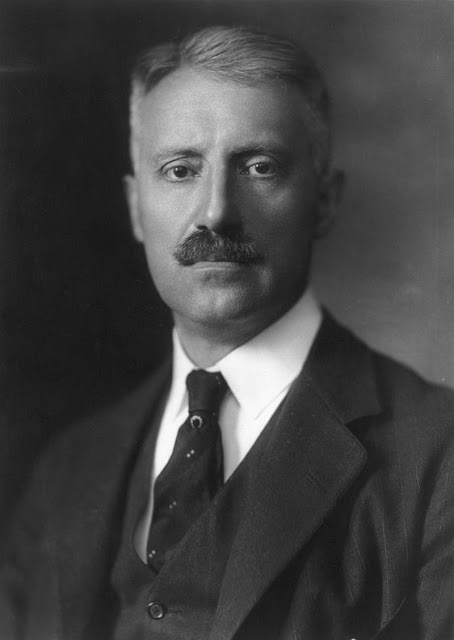As France was mustering on its border with Weimar's Ruhr, the United States took a further step towards "normalcy" by repealing almost all wartime statutory measures, including the now infamous sedition act of the period. The US Congress had made it clear that it had no intention of participating with the Allies to try to enforce the economic, and other, provisions of the Versailles Treaty and the reparations provisions were rapidly reaching a crisis stage.
The SS Hong Moh sank with the loss of 900 passengers.
Poland and Romania entered into a mutual defense treaty aimed at the USSR. It had a term of five years, but would be followed by successor treaties. Of course, when war ultimately came less than twenty years later, Romania would end up siding with Germany, but not initially. Poland declined Romanian assistance, which would have been problematic as Poland was attacked by both Germany and the USSR, but did expect to receive aid through Romania from the British. As the war quickly went back retreating Polish units did cross into Romania to be interred.
Crown Prince Hirohito left aboard a Japanese navy vessel to visit Europe, the first member of the Japanese royal family to leave to visit foreign nations in sixteen centuries. At the time he was also technically a serving officer in both the Japanese Army and Navy.
Departing President Wilson announced that he and Bainbridge Colby, his former Secretary of State, would open a law practice together, following Wilson's departure from office.
At the time there were no pensions for former Presidents. They were on their own economically. This had proven a problem to the following Presidents in the past, particularly in the case of U. S. Grant and Theodore Roosevelt, both of whom were still relatively young when they left office and both of whom retained significant followings as former Presidents. It was also a problem, of course, as they needed to make a living.
Wilson's thought of reentering the practice of law after having quit it 35 years prior as he didn't like doing it, was really poorly thought out. He didn't like it any more the second time and didn't last long as a practicing lawyer. Colby, however, would practice until his death in 1950.




No comments:
Post a Comment